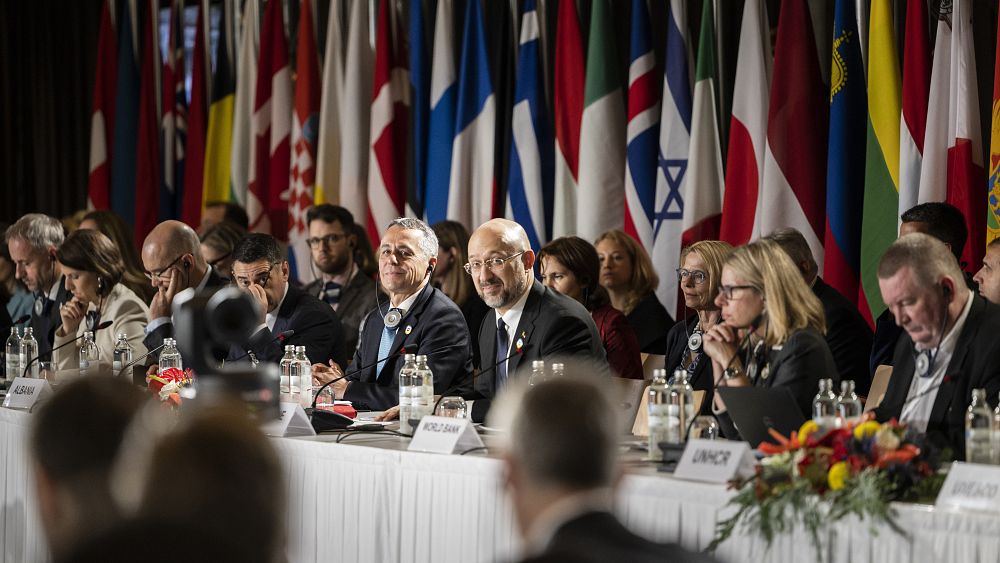The only discordant tone of the Ukrainian conference in Lugano
Since this week, Russia’s strategic isolation in Europe has increased further. The 30 NATO members have signed the accession protocols of Sweden and Finland.
A formal endorsement of NATO summit decisions in Madrid when the alliance invited Russia’s neighbor Finland and Scandinavian partner Sweden to join the military club. This will give NATO more leverage, especially in the face of the military threat from Moscow.
For NATO Secretary General Jens Stoltenberg, the alliance has stepped up: “This is the fastest accession process in NATO’s history so far, because there is no only seven weeks from the time the applications were submitted to NATO until the signing of the membership agreement”. protocols and the political agreement last week in Madrid. The next step would be ratification and it is up to parliaments to decide in the end.
Parliamentary approval in member state Turkey could still pose problems for the final inclusion of Sweden and Finland as members, despite a memorandum of understanding reached between the three. In other words, the issue remains hot because Ankara wants it that way.
Meanwhile, an international conference in the Swiss city of Lugano agreed on a set of principles for Ukraine’s reconstruction, including the need for broad reforms to boost transparency and root out corruption. At the head of the Ukrainian delegation was the country’s Prime Minister, Denys Shmyhal. He described one particular source of funding:
“So it costs more than 700 billion (euros). So we understand that is a huge, huge sum. But we understand that some of them will be compensated from the confiscated Russian assets – they should be confiscated – they should be given to Ukraine from confiscated Russian assets.”
Several international partners, including the Swiss president, rejected the plan. Their argument: the protection of property rights is fundamental in a liberal democracy. A discordant little note at the conference, just the start of a long conversation.
To find out more, we interviewed Jacob Kirkegaard, senior fellow at the Peterson Institute for International Economics in Washington and the German Marshall Fund in Brussels.
Euronews: So what is the purpose of this reconstruction conference while the war is still raging?
Kirkegaard: First of all, there is certainly a very clear desire on the part of the Ukrainians to obtain firm financial commitments as soon as possible from the Western economies which support them. And then there is also, I think, among the potential donors, a bit of a jockey to position themselves. You, like the Swiss, obviously felt that they had to be in front here to show their support for Ukraine by being co-organizers. The European Commission was also very present at the conference, as well as some of the European financial institutions. Other G7 countries, including the United States, for example, were not strongly represented, if at all.
Euronews: The Ukrainian government wants to use frozen Russian assets to fund most of the reconstruction. But many donors and international partners are reluctant to do so for legal reasons. Where are you ? After all, it’s Russia who doesn’t care about legal principles when it invades Ukraine, isn’t it?
Kirkegaard: Yes. I mean, my point of view is that I think the legal threshold of not just freezing but confiscating sovereign assets is potentially quite problematic. You know, none of this can really happen until there is a real peace treaty between Russia and Ukraine. And in that situation, I could easily imagine the Russian government as part of entering into a voluntary agreement, if you will, committing to contribute, you know, a certain amount of those frozen assets, in part because it would not be explicitly war reparations. And the money, in some respects, is lost for Russia anyway. If that happens, I think the frozen assets will also play a role with Russia’s blessing in the reconstruction effort.
Euronews: What is needed to prevent Ukraine’s reconstruction from getting bogged down in corruption?
Kirkegaard: First of all, you will need full transparency on where the money is going. This clearly involves a lot of effort on the part of the Ukrainian government. But perhaps equally important, a firm anchoring of reconstruction priorities in different Ukrainian regions with local governments, local populations. This is not something Ukraine is traditionally known for, quite the contrary. It can’t be some sort of diktat descending from kyiv, it won’t work.


Comments are closed.